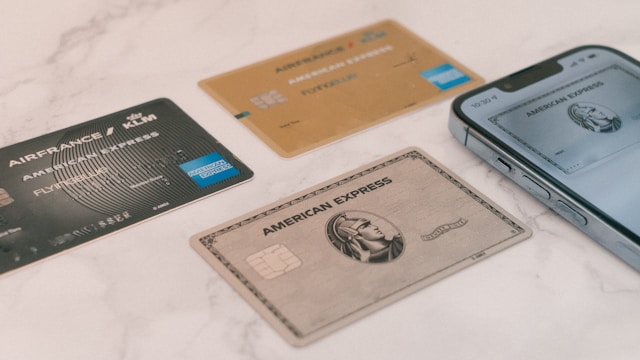Building credit is an important step in establishing a strong financial foundation. Having good credit can open doors to better loan terms, lower interest rates, and increased financial opportunities. If you’re looking to build credit fast, here are some steps you can take:
- Understand Your Current Credit Status: Start by checking your credit report to understand where you stand. You can obtain a free copy of your credit report from each of the major credit bureaus (Experian, Equifax, and TransUnion) once a year. Review your report for any errors or discrepancies that might be negatively impacting your credit score.
- Establish a Solid Foundation: If you don’t have any credit history, consider applying for a secured credit card. A secured card requires a cash deposit that serves as your credit limit. By using the card responsibly and making timely payments, you can start building positive credit history.
- Pay Bills on Time: One of the most crucial factors in building credit is paying your bills on time. Payment history makes up a significant portion of your credit score. Set up automatic payments or reminders to ensure you don’t miss any due dates. Late payments can have a negative impact on your credit, so make it a priority to pay on time.
- Keep Credit Utilization Low: Your credit utilization ratio is the percentage of available credit you’re using. Aim to keep this ratio below 30% on all your credit accounts. High credit utilization can indicate financial strain and negatively impact your credit score. If possible, pay off your balances in full each month to avoid carrying a high utilization rate.
- Diversify Your Credit Mix: Having a mix of different types of credit can demonstrate your ability to manage various financial responsibilities. Consider having a combination of credit cards, installment loans (such as a car loan or student loan), and a mortgage, if applicable. However, avoid taking on too much debt at once, as it can be counterproductive.
- Be Mindful of Opening New Accounts: While it’s important to have a diverse credit mix, be cautious about opening too many new accounts within a short period. Each time you apply for credit, a hard inquiry is made on your credit report, which can temporarily lower your credit score. Only apply for credit when necessary and in a strategic manner.
- Monitor Your Credit: Regularly monitor your credit report and score to stay informed about any changes or potential issues. Several online services offer free credit monitoring, allowing you to keep an eye on your credit profile. Promptly address any errors or fraudulent activities you spot on your report.
- Patience and Persistence: Building credit takes time, so be patient and persistent. Focus on consistently practicing good credit habits, and over time, you’ll see your credit score improve. Remember that building credit fast doesn’t happen overnight, but with diligence, you can achieve your goals.
- Become an Authorized User: If you have a trusted family member or friend with a good credit history, you can ask them to add you as an authorized user on one of their credit cards. This allows their positive credit history to reflect on your credit report, boosting your credit score. However, ensure that the primary cardholder maintains responsible credit habits to avoid any negative impact.
- Use Rent and Utility Payments to Your Advantage: Some credit bureaus and credit-scoring models consider rental and utility payment history when calculating your credit score. Consider using services that report these payments to credit bureaus, such as Experian RentBureau or services like LevelCredit and RentTrack. This can help establish a positive payment history and improve your credit profile.
- Apply for a Credit Builder Loan: Credit builder loans are specifically designed to help individuals establish or rebuild credit. With these loans, the borrowed funds are typically held in a separate account, and you make monthly payments towards the loan. Once you’ve repaid the loan, you receive the funds, and the positive payment history is reported to the credit bureaus, helping to boost your credit score.
- Seek Secured Loans: If you’re in need of a loan, but your credit history is limited or poor, you may consider applying for a secured loan. With a secured loan, you provide collateral, such as a car or savings account, which reduces the lender’s risk. Making timely payments on a secured loan can demonstrate responsible financial behavior and positively impact your credit score.
- Consider Credit-Builder Credit Cards: Some financial institutions offer credit cards specifically designed for building credit. These cards often have lower credit limits and may require a deposit. However, by using them responsibly and making consistent on-time payments, you can gradually improve your credit score.
- Avoid Closing Old Credit Accounts: Closing old credit accounts can shorten your credit history and reduce the overall credit available to you. Instead, consider keeping those accounts open, especially if they have a positive payment history. Keeping accounts open for a longer duration demonstrates stability and positively contributes to your credit score.
- Seek Professional Advice if Needed: If you’re facing significant credit challenges or feel overwhelmed by the process, consider seeking advice from a reputable credit counseling agency. They can provide guidance on improving your credit, managing debt, and creating a personalized plan to achieve your credit goals.
Remember, building credit fast requires consistent effort and responsible financial behavior. While these tips can help accelerate the process, it’s essential to be patient and maintain good credit habits in the long run. By following these strategies and adapting them to your unique circumstances, you’ll be on your way to building a solid credit foundation.



